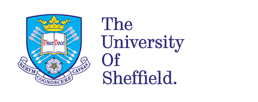
Holzhauer, B., Hampson, L.V., Gosling, J.P., Bornkamp, B., Kahn, J., Lange, M.R., Luo, W-L., Brindicci, C., Lawrence, D., Ballerstedt, S. and O'Hagan, A.
Novartis Pharma AG, Basel, Switzerland; University of Durham, UK; Novertis Pharma, East Hanover, USA and University of Sheffield, UK
Publication details: Pharmaceutical Statistics . 2022. http://doi.org/10.1002/pst.2212
Pharmaceutical companies regularly need to make decisions about drug development programs based on the limited knowledge from early stage clinical trials. In this situation, eliciting the judgements of experts is an attractive approach for synthesising evidence on the unknown quantities of interest. When calculating the probability of success for a drug development program, multiple quantities of interestó-such as the effect of a drug on different endpointsó-should not be treated as unrelated. We discuss two approaches for establishing a multivariate distribution for several related quantities within the SHeffield ELicitation Framework (SHELF). The first approach elicits experts' judgements about a quantity of interest conditional on knowledge about another one. For the second approach, we first elicit marginal distributions for each quantity of interest. Then, for each pair of quantities, we elicit the concordance probability that both lie on the same side of their respective elicited medians. This allows us to specify a copula to obtain the joint distribution of the quantities of interest. We show how these approaches were used in an elicitation workshop that was performed to assess the probability of success of the registrational program of an asthma drug. The judgements of the experts, which were obtained prior to completion of the pivotal studies, were well aligned with the final trial results
Keywords: Bayesian, expert elicitation, multivariate priors, prior elicitation, probability of success, SHELF